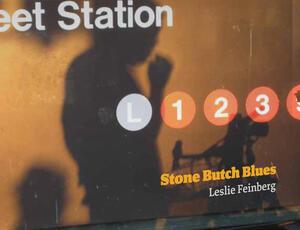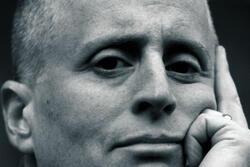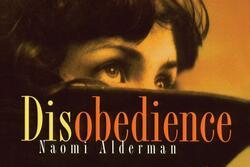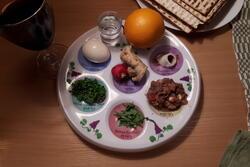Centering My Queer Ancestors' Stories
Cover page for the 20th anniversary copy of Stone Butch Blues by Leslie Feinberg.
This summer, for my English independent reading assignment, I set out to read a book by and about a queer person. In my English classes, we are regularly assigned projects that involve choosing a book to read on our own. For the past several years, I have chosen only books by authors of color. This is in part a concerted effort to continue expanding my own horizons and in part a silent protest of my school’s strikingly undiverse curriculum, which I have fought with some success to see improved. But this spring, after my school’s administration attempted to restrict the production of a student-written play simply for its inclusion of teenage LGBTQ characters, I saw in clear vision that my school also fails to showcase diverse sexualities and genders in its curriculum.
I am a queer person and, to me, that identity is not only personal but communal. How I see myself and how I walk through the world is shaped not only by my own experiences and feelings but by the LGBTQ people I meet and our community around the world. I think of past generations of queer people as my ancestors, but I know very little about their lives. A school curriculum that told their stories, our stories, would help LGBTQ youth better understand ourselves and feel understood by others. It would also help the rest of the world understand who we are and what we go through. These stories should be included in all school curriculums, but they’re not. So, this summer, I chose to center the stories of the queer community. This summer, I read Stone Butch Blues by Leslie Feinberg.
Stone Butch Blues is a novel about the life of Jess Goldberg, a working-class butch Jewish lesbian in New York starting in the 1940s. The book is about being a lesbian in twentieth century New York, about Jess’ struggle with gender non-conformity and about the working class’s fight to unionize and gain power. While it’s fictional, in many ways it parallels the author’s life. Feinberg also grew up in a working-class Jewish family in upstate New York and was a revolutionary communist who fought against racism, war, and for the rights of workers around the world.
Feinberg wrote a number of books about the transgender experience. Feinberg identified as both female and transgender. This type of experience is conveyed through Jess and the other butches in Stone Butch Blues. Jess struggles to understand this identity, and faces violence because of it. Jess is sexually assaulted by classmates and police officers and is attacked and ostracized by strangers and coworkers. This account of a trans experience was powerful and important for me to read as a cisgender queer woman.
The book also opened a window for me into a recent part of my own history; an image of what it meant to be queer for some of my ancestors in mid-twentieth century America. It allowed me to hear my ancestors speak, and it gave me a new understanding of what it means to be queer. The violence that they faced, and the communities and the love that they managed to foster despite it, motivates me to fight for my community’s rights today, to live my own life loudly and in gratitude, and to love both those around me and the entire community as fiercely as I can.
The book not only inspired me to fight; it also showed me how to. The lesbian community in the book is based around butch-femme relationships; lesbian relationships that, to an extent, mirror traditional gender roles. Within the book, younger lesbians begin to attack this relationship structure for its similarity to heterosexuality. The world has changed since this book took place, and it’s unequivocally good that queer women are less restricted by gendered roles. The novel itself criticizes the rigidity of these expectations. But the book also makes clear that butch and femme identities and relationships were sources of power for many. As the LGBTQ community grows and evolves, we, and our allies, must remember to prioritize the words and presentations that allow people to find power in their identities. And we must respect the identities and activism of our ancestors who created the world we have today.
The strength of the community in the book is also based on lesbian bars. These institutions, almost entirely gone today, are the only places Jess can find community, resources, and safety. Yet, even these safe havens face a constant threat of brutal police violence. The role the bars play in Jess’s life is vital and a reminder that safe community spaces not only must exist, but must constantly be fought for. The bars create a space for experiences to be shared and thus allow trauma, both personal and historical, to be processed. They enable interchange of history and resources. And they create a respite from violence and neglect, both personal and societal. Spaces like this are necessary not only for LGBTQ people but for every marginalized group, and even more so for those who exist at the intersections of these groups. Not having these spaces does not make marginalized people more equal in society; it makes them more alone.
Stone Butch Blues is a beautiful novel about a human experience. It’s about safe spaces, it’s about queer identity, it’s about living in a society that doesn’t like who you are. And for a group of people that doesn’t learn about ourselves from our parents or our textbooks, it’s a history book. And knowing your history is revolutionary.
This article was republished on Fresh Ink for Teens.
This piece was written as part of JWA’s Rising Voices Fellowship.






